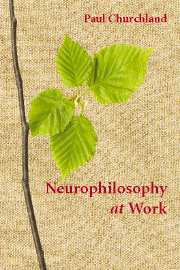Book contents
- Frontmatter
- Contents
- Preface
- Provenances
- 1 Catching Consciousness in a Recurrent Net
- 2 Functionalism at Forty: A Critical Retrospective
- 3 Toward a Cognitive Neurobiology of the Moral Virtues
- 4 Rules, Know-How, and the Future of Moral Cognition
- 5 Science, Religion, and American Educational Policy
- 6 What Happens to Reliabilism When It Is Liberated from the Propositional Attitudes?
- 7 On the Nature of Intelligence: Turing, Church, von Neumann, and the Brain
- 8 Neurosemantics: On the Mapping of Minds and the Portrayal of Worlds
- 9 Chimerical Colors: Some Phenomenological Predictions from Cognitive Neuroscience
- 10 On the Reality (and Diversity) of Objective Colors: How Color-Qualia Space Is a Map of Reflectance-Profile Space
- 11 Into the Brain: Where Philosophy Should Go from Here
- Bibliography
- Index
5 - Science, Religion, and American Educational Policy
Published online by Cambridge University Press: 24 July 2009
- Frontmatter
- Contents
- Preface
- Provenances
- 1 Catching Consciousness in a Recurrent Net
- 2 Functionalism at Forty: A Critical Retrospective
- 3 Toward a Cognitive Neurobiology of the Moral Virtues
- 4 Rules, Know-How, and the Future of Moral Cognition
- 5 Science, Religion, and American Educational Policy
- 6 What Happens to Reliabilism When It Is Liberated from the Propositional Attitudes?
- 7 On the Nature of Intelligence: Turing, Church, von Neumann, and the Brain
- 8 Neurosemantics: On the Mapping of Minds and the Portrayal of Worlds
- 9 Chimerical Colors: Some Phenomenological Predictions from Cognitive Neuroscience
- 10 On the Reality (and Diversity) of Objective Colors: How Color-Qualia Space Is a Map of Reflectance-Profile Space
- 11 Into the Brain: Where Philosophy Should Go from Here
- Bibliography
- Index
Summary
Introduction
I take up this topic with some trepidation, for these are often troubled waters. But 'tis oil I mean to spread, and calm I hope to restore. The occasion, of course, is the 1999 decision, by the State School Board for Kansas, to delete the topic of Darwinian evolution from the required curriculum for high school biology, and the topic of big bang cosmology from the required curriculum for high school physics. This dual deletion was itself a gentler event than it might have been, for the worthy group who comprised the school board wisely made no attempt to prohibit the teaching of either topic in the high schools of Kansas. Instead, it permanently removed these two topics from the examinations that Kansas students are required to write, and pass, to get credit for their courses in biology and physics.
This removal has substantial consequences of its own, to be sure, consequences of which the board was entirely aware. As measured against the narrow goal of getting a decent grade in either of these new “Kansas Science” courses, a student now has no motive (indeed, given finite resources, has a negative motive) to learn the substance of either of the disputed topics, and any teacher who presumes to teach them, in the teeth of the new exam policy, is strictly wasting instructional time that could be better spent elsewhere. This, I believe all parties will calmly agree, was the central point of the board's decision.
- Type
- Chapter
- Information
- Neurophilosophy at Work , pp. 75 - 87Publisher: Cambridge University PressPrint publication year: 2007



